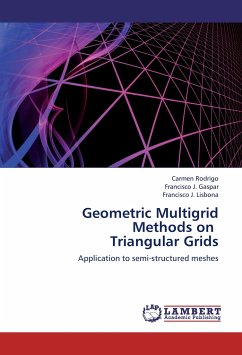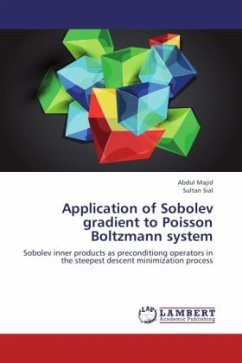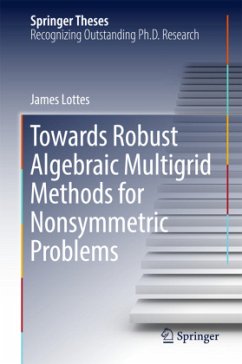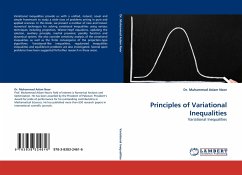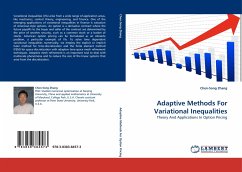
Adaptive Methods For Variational Inequalities
Theory And Applications In Option Pricing
Versandkostenfrei!
Versandfertig in 6-10 Tagen
52,99 €
inkl. MwSt.

PAYBACK Punkte
26 °P sammeln!
Variational inequalities (VIs) arise from a wide range of application areas, like mechanics, control theory, engineering, and finance. One of the emerging applications of variational inequalities in finance is valuation of American-style options. An option is a derivative contract where the future payoffs to the buyer and seller of the contract are determined by the price of another security, such as a common stock or a basket of stocks. American option pricing can be formulated as an obstacle problem, a particular example of VIs. To solve time dependent variational inequalities numerically, w...
Variational inequalities (VIs) arise from a wide range of application areas, like mechanics, control theory, engineering, and finance. One of the emerging applications of variational inequalities in finance is valuation of American-style options. An option is a derivative contract where the future payoffs to the buyer and seller of the contract are determined by the price of another security, such as a common stock or a basket of stocks. American option pricing can be formulated as an obstacle problem, a particular example of VIs. To solve time dependent variational inequalities numerically, we employ the explicit or implicit Euler method for time-discretization and the finite element method (FEM) for space-discretization with adaptive time-space mesh refinement techniques. Adaptive mesh refinement is an important tool to deal with multiscale phenomena and to reduce the size of the linear systems that arise from the discretization.




